If you’ve been wondering how to get rid of spider mites naturally, you’re at the right spot. Though pest control is among the most annoying chores for any gardener, it’s even more of a challenge when they’re hard to spot. Spider mites are so tiny that they’re not always visible to the naked eye, making it difficult to get rid of them.
Getting rid of spider mites naturally includes introducing predators, spraying the plants with pressure water, pruning and disposing of the infested leaves. There are several home remedies that work effectively against spider mites, including cayenne pepper spray, garlic spray and neem oil.
In favorable conditions, spider mites multiply quickly, laying eggs on the underside of the leaves with an exponential growth in population in a matter of days. Employing suitable techniques to cater the infestation is very important in preventing lethal consequences on the plants.
How To Get Rid Of Spider Mites Naturally
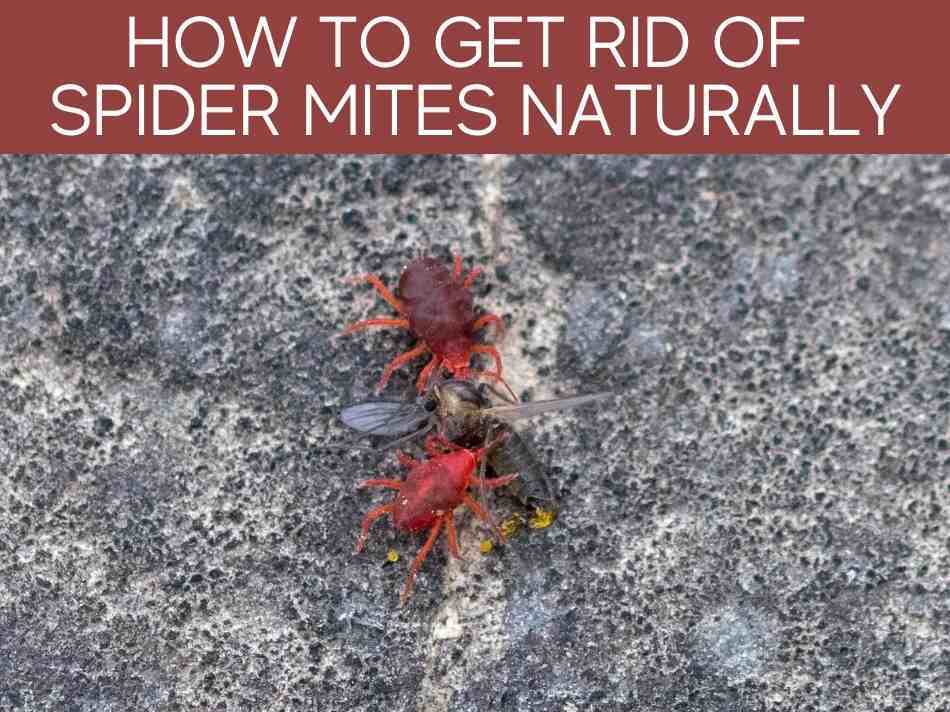
Many gardeners don’t approve the use of chemical pesticides in the garden since it disrupts the ecological balance and can kill beneficial insects as well.
Moreover, chemicals can be toxic to humans and pets so avoid using them especially if you have pets or children in the house.
Natural predators, such as ladybugs and lacewings keep the population of spider mites and other pests in control.
Encourage these beneficial insects in the garden by avoiding the use of chemicals, watering regularly, mulching and growing flowers.
Predatory insects are also available in stores for fighting spider mites.
Garden centers typically sell predatory mites, Phytoseiulus persimilis, for controlling spider mites on garden plants.
What Kills Spider Mites Naturally
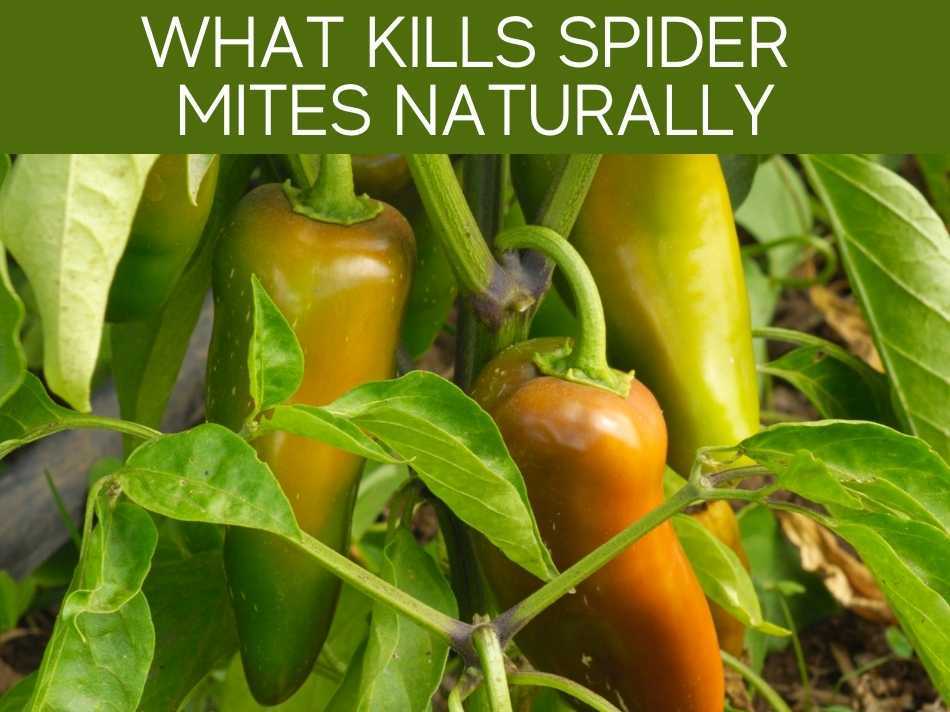
Pepper extracts, including those from bell pepper, jalapenos, cayenne pepper and chile, are known to be toxic to spider mites.
Capsaicin present in pepper is what is lethal to mites and kills them by damaging their nervous system.
Research has shown that these peppers can effectively kill about 45% spider mites on plants.
You’ll need to repeat applications to see successful results.
A spider mite killer hot pepper spray can be prepared by mixing 1 teaspoon of pepper powder in 1 quart of water and adding it to a sprayer bottle.
To make the spray even stronger, you can also let crushed garlic sit in it overnight before straining the mixture.
Spray the plants generously, making sure you get it on the top and the bottom of the leaves.
Many gardeners also add baby shampoo to the mixture for even more pronounced results.
Don’t add any harsh soaps to the solution as they can burn the plants.
Home Remedy To Kill Spider Mites On Plants
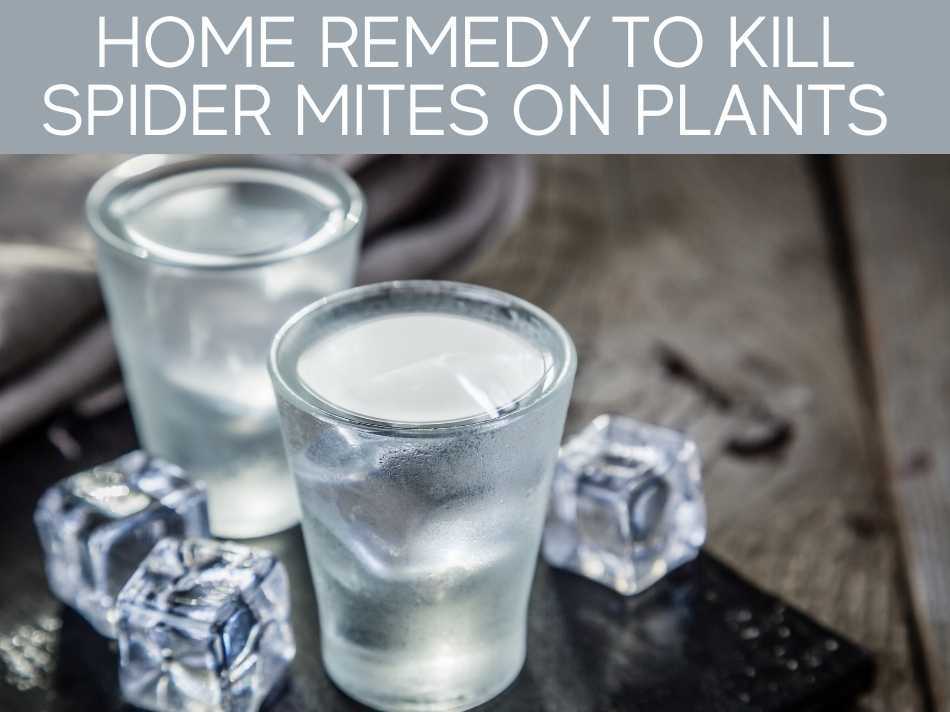
Alcohol is an effective pest killer.
Alcohol is effective against several kinds of garden pests, including aphids and spider mites.
If you have alcohol available in the house, this simple technique can help you kill spider mites on plants and restore the health of your garden.
Prepare a solution with equal parts of alcohol and water, dip a cotton swab in the solution and rub the foliage with the solution.
Make sure you thoroughly rub both sides of the leaves.
While it’s easy to rub the leaves if you only have a single plant to work on, if the infestation has spread to multiple plants, you can also spray the alcohol solution on the plants using a sprayer bottle.
Let alcohol sit on the plants for a few hours before rinsing it away with water.
How Do You Get Rid Of Spider Mites Organically
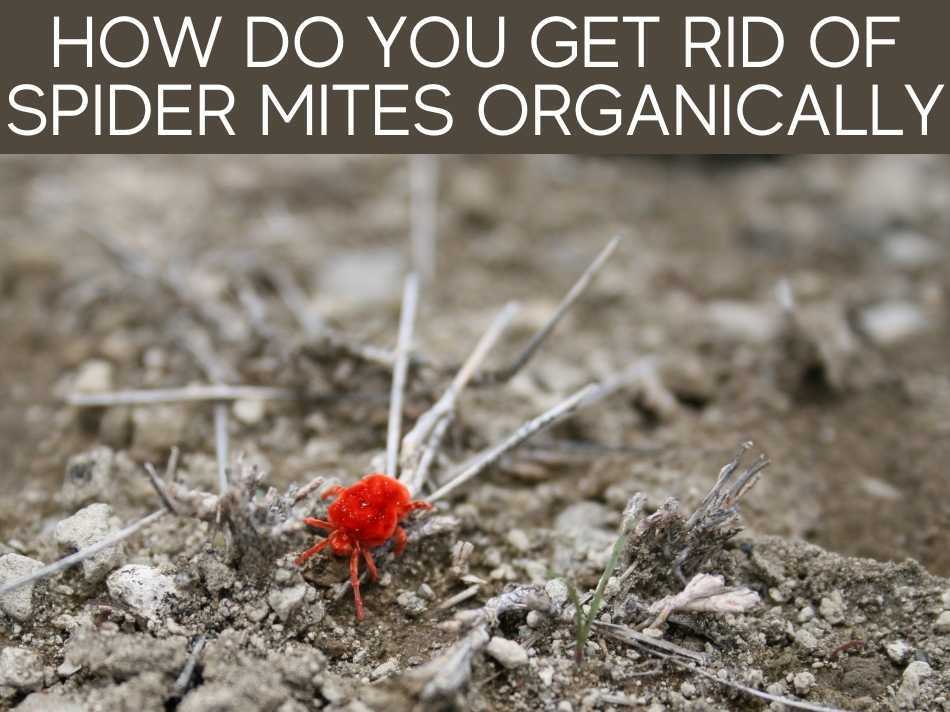
Instead of resorting to chemical pesticides for killing spider mites, there are several organic approaches to focus on that are just as effective.
Insecticidal soaps and horticultural oils are effective organic techniques to get rid of spider mites and have little impact on humans, animals and beneficial insects.
Together with petroleum-based horticultural oils, plant-based oils, including neem oil, cottonseed oil and canola oil are also effective against mites.
Since these products have no residual effect and are only beneficial if they directly contact the spider mites, you’ll need to apply them generously on the foliage.
Make sure you spray the product on the top of the leaves as well as its undersides.
Repeat the applications as needed until the plants are completely rid of spider mites.
How To Get Rid Of Spider Mites On Roses Naturally
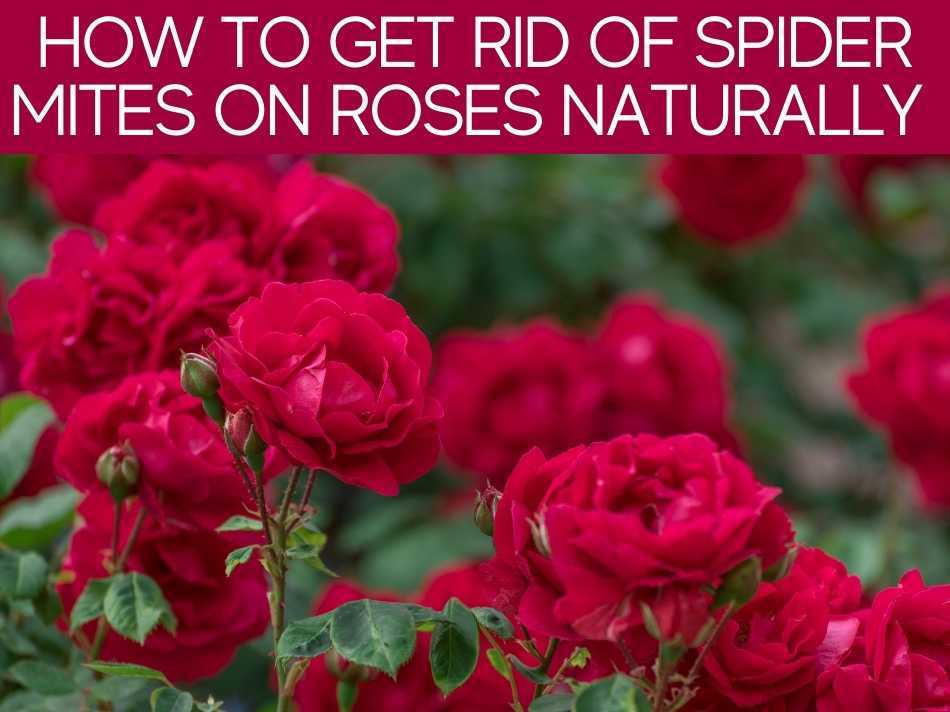
Rose plants are one of the favorite meals of spider mites.
They eat away the plant, leaving behind discolored and scorched leaves.
If left untreated, the damage caused by spider mites can lead to excessive leaf loss and, eventually, the death of the plants.
It’s possible to get rid of spider mites on rose plants by regular syringing.
Syringing involves knocking off the adult mites, together with their eggs and webbing from the plant.
Besides rose bushes, this technique is effective in keeping spider mites off most ornamental plants in your garden.
Since the technique solely involves water, it’s completely natural and helps conserve the natural ecosystem of your garden, together with all the beneficial insects that visit it.
How To Get Rid Of Spider Mites On Indoor Plants Naturally
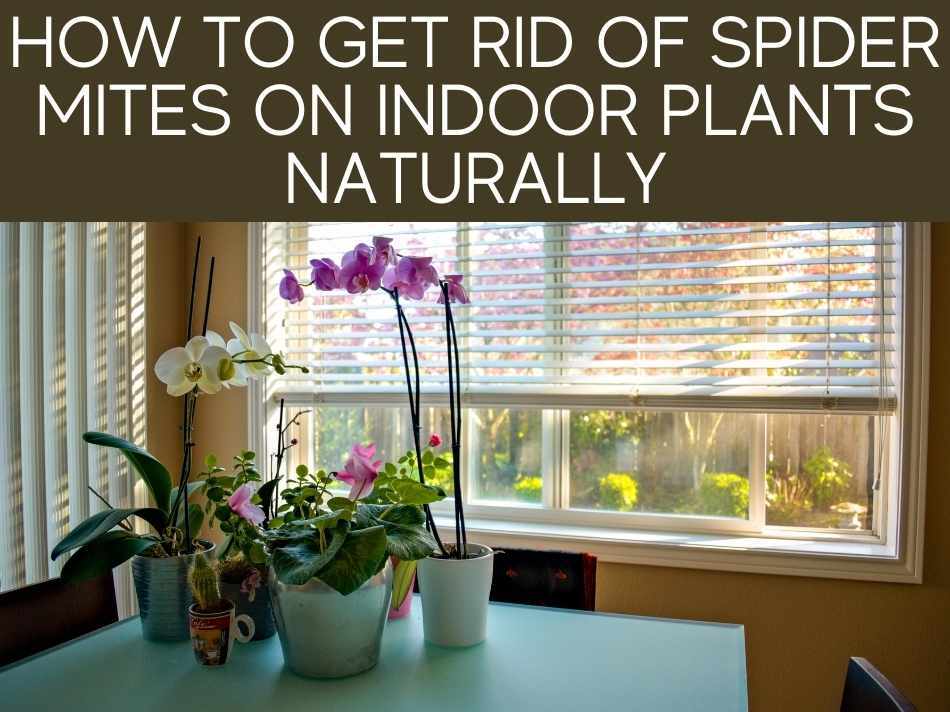
Spider mites are a common pest that attack indoor plants.
Before getting rid of spider mites on an indoor plant, it’s important to isolate that plant from the rest of the houseplants instantly to avoid spreading the infestation to others.
Wipe off the leaves with a damp cloth regularly to remove the pests, including spider mites.
Spider mites enjoy dry, warm environments and will multiply quickly if they receive these favorable conditions.
To deter them from your houseplants, create a humid environment by using a humidifier in the room or misting the plants regularly.
Check out the full guide on how to kill spider mites on indoor plants.
How To Use Neem Oil To Get Rid Of Spider Mites
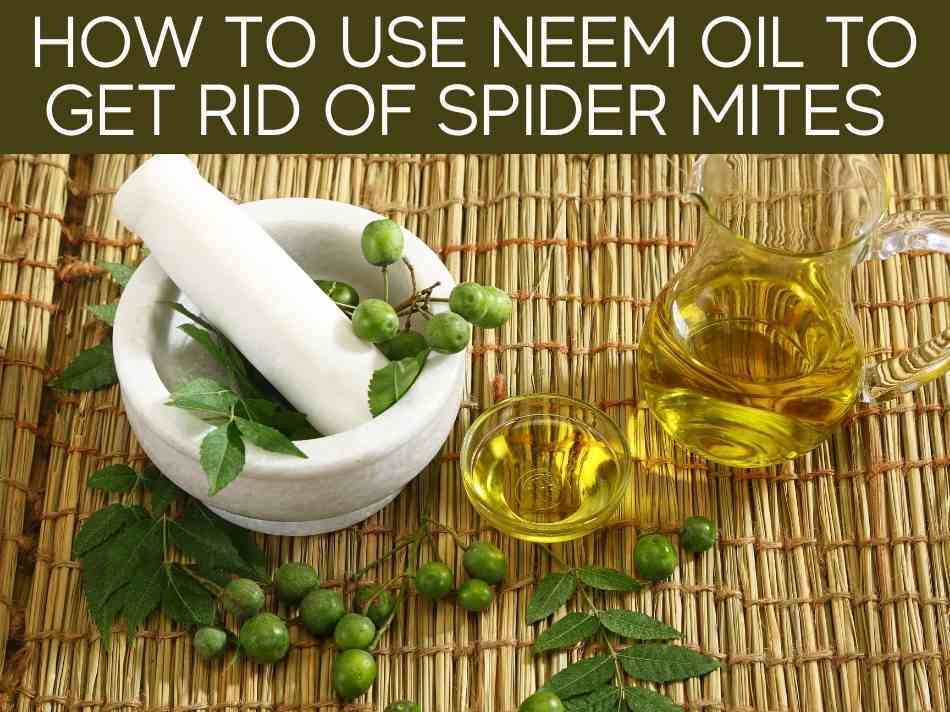
Among organic approaches to get rid of spider mites on houseplants and garden plants, neem oil is a popular one.
Neem oil is an essential oil extracted from the seeds of neem tree and works as an excellent natural miticide.
It can be used both outdoors and indoors to deter mites.
Neem oil works on mites by suffocating them, eventually resulting in their death.
Sponge the leaves with neem oil to get rid of spider mites naturally.
Alternatively, you can also spray the plants with a mixture of neem oil and water.
Gardeners often use this technique on plants in place of chemical pesticides to keep the environment safe for pets and children.
Does Dish Soap Kill Spider Mites
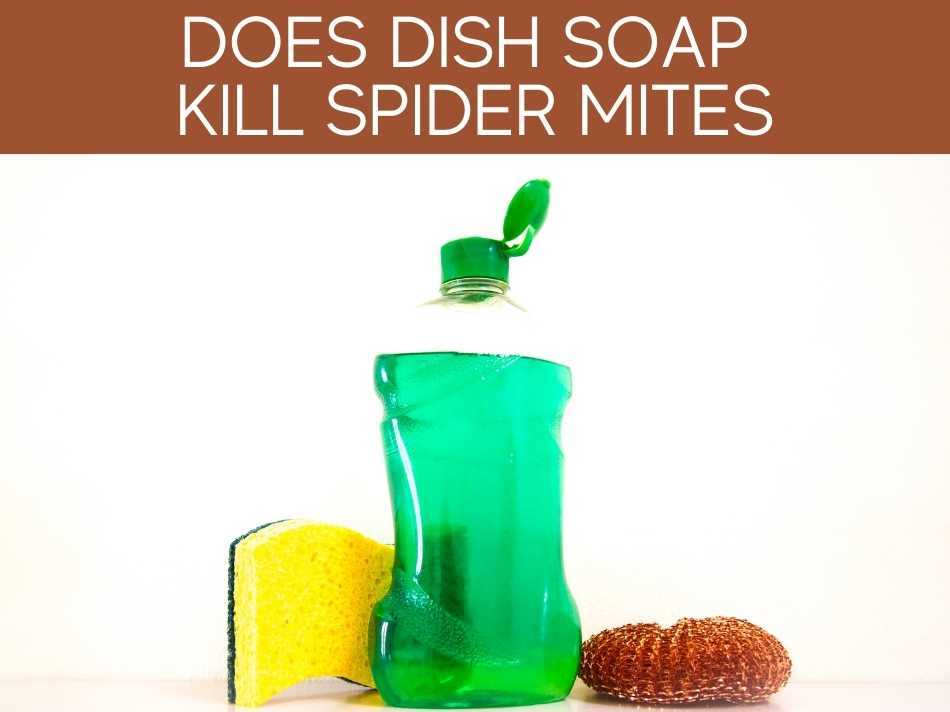
Gardeners often use dish soap solution to get rid of pests.
Besides killing other pests, dish soap is also effective against spider mites.
Mixing 3 tablespoons of dishwashing soap in a gallon of water prepares a solution good enough for killing spider mites.
Add the mixture to a sprayer bottle and apply it to the plants, especially the undersides of the leaves.
Reapply the solution every week or so if necessary to get rid of mites.
While it is an effective pest control technique, some plants are sensitive to soap.
Test the method on a small part of the plant before spraying the entire plant with the mixture.
Also, after leaving the mixture sit on the leaves for a few hours, wash it off the plants with water to prevent any residual damage on the plants.
Does Peroxide Kill Spider Mites
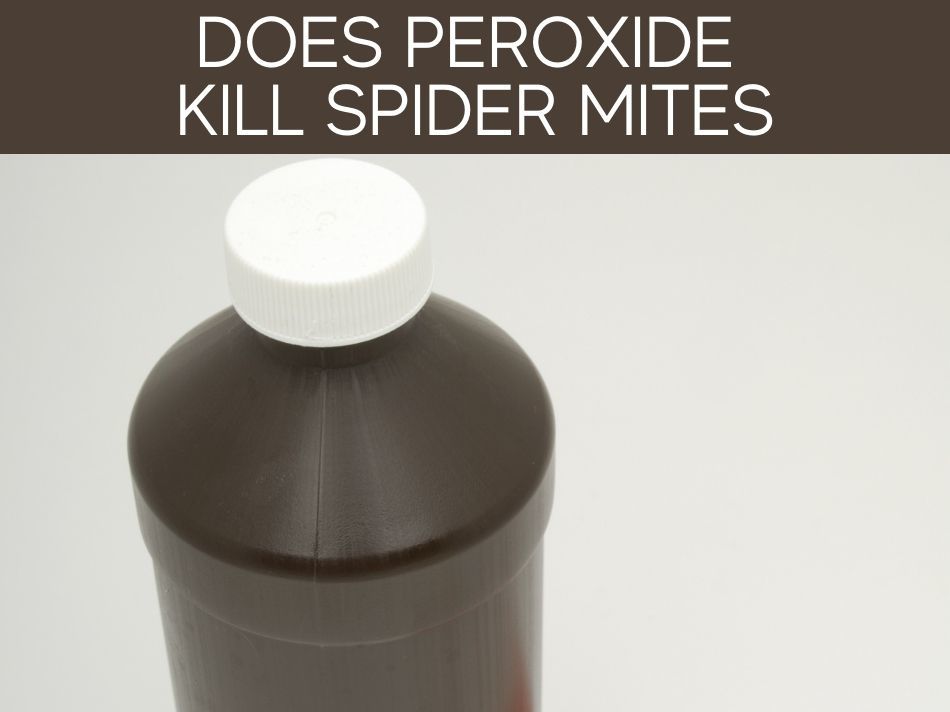
From treating a sinus infection, to relieving toothaches, cleaning mirrors, toilets and removing odors from carpets, hydrogen peroxide has tons of different uses in the house.
As it turns out, hydrogen peroxide is also effective in controlling pests.
Create a mixture with 8 ounces of 3% hydrogen peroxide, 8 ounces of white sugar and 1 gallon of water and add it to a sprayer bottle.
Stir the mixture and spray the plants with it.
Repeat the application every day for a period of at least a week to get rid of the mites.
The sugar in the solution simply helps the mixture stick to the leaves for longer to help pronounce the effects.
How To Get Rid Of Spider Mites In Your Garden
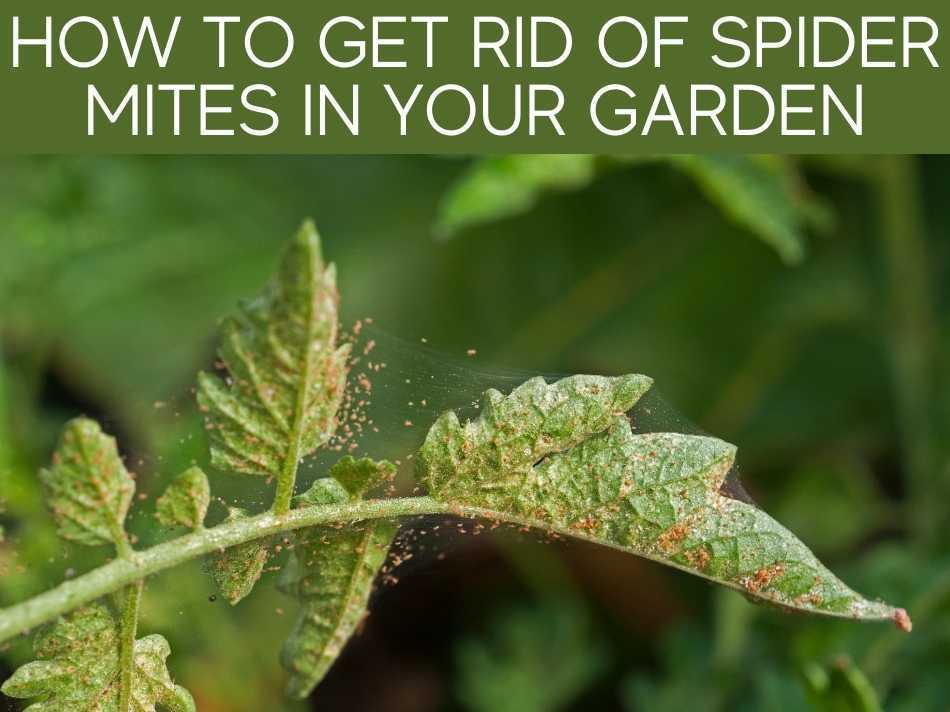
Spider mites are most active in hot and dry summers, which is when you need to be especially vigilant in monitoring your plants for any damage.
Keep the plants well watered to prevent dry conditions for spider mites to thrive on.
If you find these tiny creatures or any fine webbing around the plants, take it as a signal to take action against spider mites.
Prune and discard any infested leaves.
Make sure you secure them in a plastic bag and throw them in the waste bin to prevent the mites from spreading elsewhere.
Once the infested leaves are removed, spray the plants with an essential oil such as eucalyptus oil, lemon oil or cinnamon oil to deter further spider mites from visiting the garden.
You might also want to check out the full guide on how to get rid of aphids in the garden.
Conclusion
Choose natural methods for controlling spider mites and other pests over chemical control.
Not only is it better for the environment, but your plants as well.
While chemicals can kill important microbes in the soil and deter beneficial insects, natural tips highlighted above ensure pest-free plants while making the most out of the natural ecosystem of your garden.

